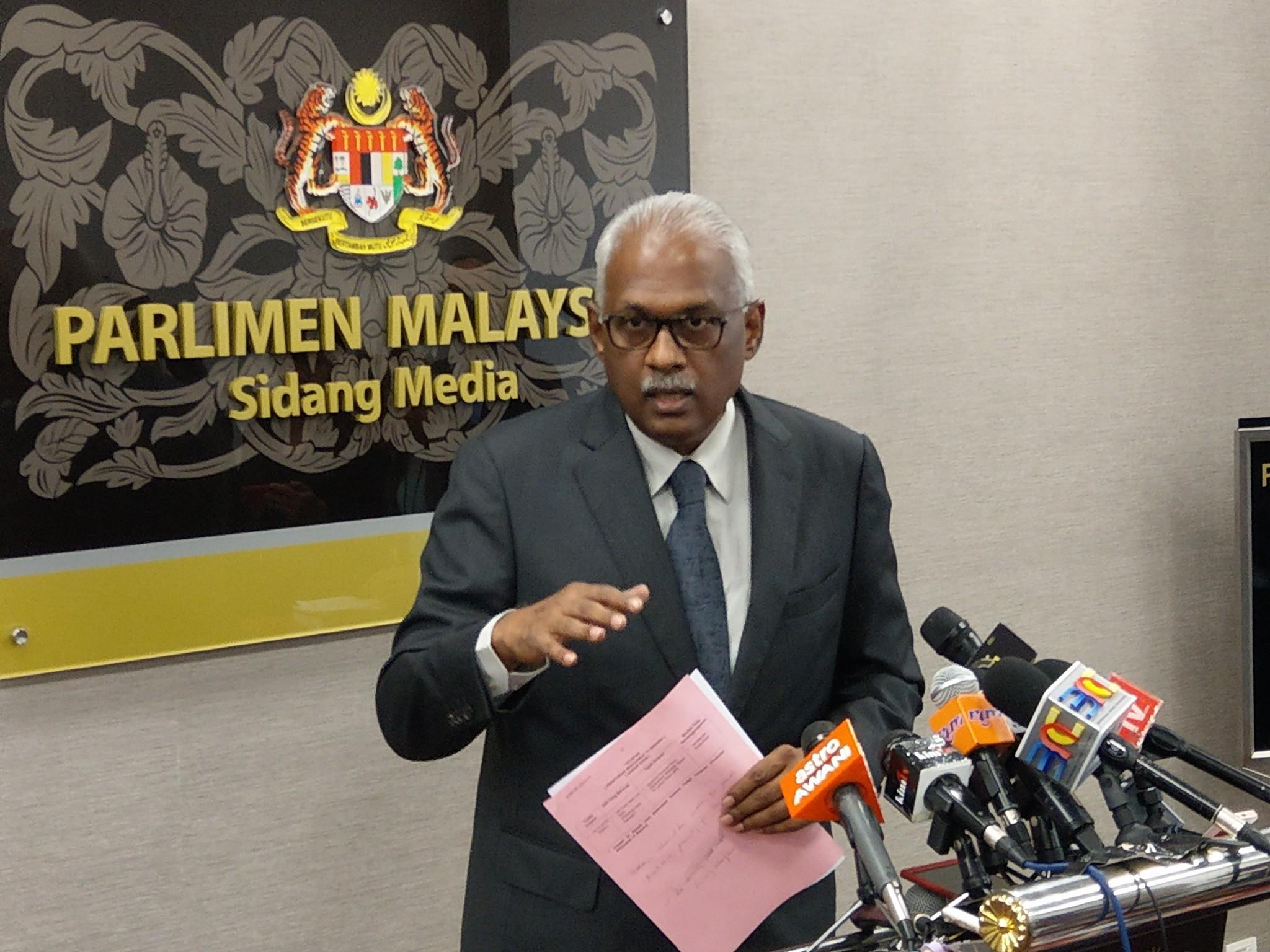KUALA LUMPUR, Jan 28 — The 11.3 per cent increase in new cancer cases in Malaysia from 103,507 in 2007-2011 to 115,238 in 2012-2016 is “horrifying”, a government MP said.
As such, DAP lawmaker and cancer advocate Charles Santiago called on the Pakatan Harapan (PH) government to increase its resolve to fight the chronic disease, warning that the numbers might be even higher than what was reported.
The Klang MP also panned the rise of about five percentage points in cancers detected in late stages, from 58.8 per cent from 2007 to 2011, to 63.7 per cent in 2012 to 2016, as reported in the newly released Malaysia National Cancer Registry Report (MNCRR) 2012-2016.
“The Ministry of Health (MOH) needs to be more aggressive with its marketing in order to detect cancer at an early stage,” Charles told CodeBlue.
“MOH and the states should provide funds to dedicated NGOs to promote early detection,” he added, noting that early detection can prolong quality of life, as well as reduce the financial burden for patients and the government.
Staging was reported for 58,635 cases in the 2012 to 2016 period, of which 9,102 (15.5 per cent) were in Stage 1, 12,194 (20.8 per cent) in Stage 2, 13,384 (22.8 per cent) in Stage 3, and 23,955 (40.9 per cent) in Stage 4.
For the 2007 to 2011 period — which was the timeframe reported in the earlier MNCRR 2007-2011 — a total of 103,507 new cancer cases were reported, of which 52,794 (51.0 per cent) had reports on staging. A total of 9,029 cases (17.1 per cent) were in Stage 1, 12,445 (23.6 per cent) in Stage 2, 12,135 (23.0 per cent) in Stage 3, and 18,885 (35.8 per cent) in Stage 4.
The increase in late-stage cancer detections trend was also observed in several common cancers that may be detected by early screening, including breast cancer — which is the most common cancer in Malay, Chinese, and Indian Malaysian women. Late-stage cancer cases recorded a two percentage point increase for Stage 3, and a 2.7 percentage point increase for Stage 4 cancer.
Health director-general Dr Noor Hisham Abdullah recently said the increase in late-stage detection in cancer cases was worrying, noting the 2018 Malaysian Study on Cancer Survival finding that the later cancer is detected in a person, the lower their survival rates are.
Charles called for the creation of an online system of reporting cancer cases by government doctors to bridge this gap, similar to the system in place to identify people living with HIV, which is a notifiable disease in Malaysia. Cancer is not.
“Here, if doctors don’t report (cancer cases), it does not go into the registry system. So, we need to have a better system in place, similar to HIV,” said the chair of the ASEAN Parliamentarians for Human Rights network, but stopped short of calling for a national registry backed by law that would make cancer a notifiable disease.
HIV surveillance is under the responsibility of the AIDS/Sexually Transmitted Infections (STI) sector of MOH.
In 2009, MOH established the National AIDS Registry (NAR) to replace its existing sentinel surveillance programme covering HIV target groups. The internet-based registry was designed to function as a more streamlined and effective national HIV programme monitoring mechanism that is able to capture disaggregated data systematically.
The NAR captures data on each HIV patient relating to their socioeconomic background, status of HIV treatment, and background information, according to the National Strategic Plan on HIV and AIDS 2011-2015. The data is then stored in an online database, which can be accessed by government doctors nationwide, but only on a need-to-know basis. This is useful for public doctors treating patients from other states or areas seeking treatment, and who do not have their treatment history on hand.
“If there isn’t one, then MOH should create a new one (registry) for all diseases, so private and public hospitals, including clinics, can forward information to a centralised station that is linked to MOH,” Charles added.
Charles, however, noted that people are always in denial, even if they suspect a lump on their bodies or breasts. Getting people checked for cancer then becomes difficult for the government or agencies running tests, he said.
“Husbands need to work together with wives when the latter has a lump,” he proposed. “Women are worried that their husbands will dump them for someone else. Others feel that their identity as a woman would be compromised if they remove their breasts.
“Women battle with these issues. So, they get checked when it’s simply too late,” he lamented.








